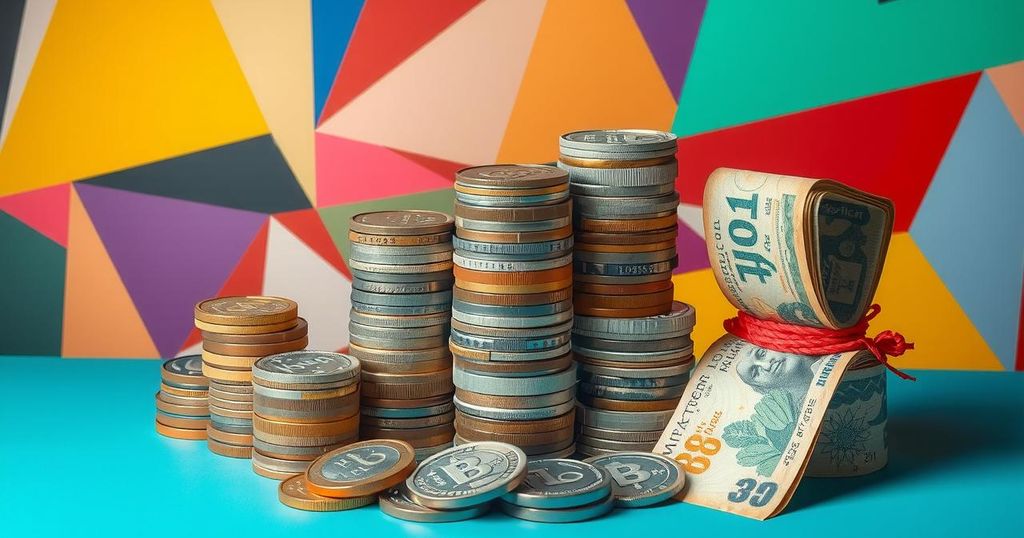Argentina has requested a $20 billion loan from the IMF as it grapples with currency devaluation and high inflation rates. The government is also negotiating additional funding with entities like the World Bank. Discussions with the IMF are advanced, but details remain uncertain. The situation is compounded by political unrest and opposition efforts to destabilize the current administration under President Javier Milei.
Argentina has officially requested a $20 billion loan from the International Monetary Fund (IMF), as announced by the country’s economy minister, Luis Caputo. This request arises amid challenges in maintaining foreign reserves and the pressure of a declining currency, the peso, which experienced significant depreciation recently. Additionally, negotiations for an auxiliary package are underway with entities such as the World Bank and the Inter-American Development Bank.
The government, led by President Javier Milei, revealed this preliminary lending figure following a substantial loss of reserves exceeding $1.2 billion, exacerbated by fears of peso devaluation. Discussions with the IMF are reportedly in advanced stages, as noted by spokeswoman Julie Kozack, although the specific size of the financing package has not been disclosed. Caputo clarified that the loan aims to bolster the Argentine central bank rather than cover expenses.
Historically, Argentina has a troubled relationship with the IMF, having defaulted multiple times and receiving bailouts 22 times. Currently, the nation owes $44 billion under a previous agreement established in 2018, representing the largest loan ever issued by the IMF. Inflation remains a pressing issue, although it has notably decreased from 211% at the end of 2023 to 84.5% in January under President Milei’s administration.
The President, self-identified as an “anarcho-capitalist,” has promised austerity measures to address fiscal deficits. As the mid-term elections approach, controlling inflation has become crucial for Milei’s political prospects, especially as his party seeks to fortify its position in Congress. Meanwhile, Caputo attributed the recent currency turmoil to efforts to destabilize the Milei administration, fueled by opposition actions, amid ongoing protests and strikes by various groups throughout the country.
Distinctly, Argentina has multiple exchange rates for the dollar, contributing to a vibrant black market where the ‘blue’ dollar was valued significantly higher than the official rate. Despite government pledges to lift foreign exchange restrictions imposed in 2018, the ongoing shortage of foreign currency has hindered progress towards achieving this goal.
In summary, Argentina’s pursuit of a $20 billion IMF loan highlights its ongoing economic challenges, including currency instability and high inflation rates. The government’s aim to recapitalize the central bank and negotiate additional support indicates a focus on financial stabilization. Amid political tensions and public protests, the country’s ability to implement effective reforms will be crucial for future economic recovery and maintaining the government’s credibility.
Original Source: www.victoriaadvocate.com






